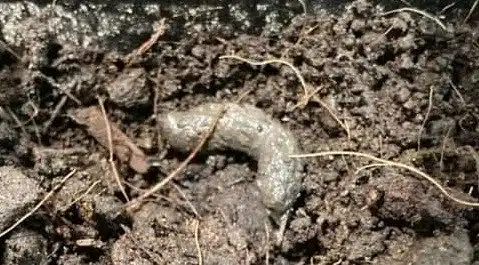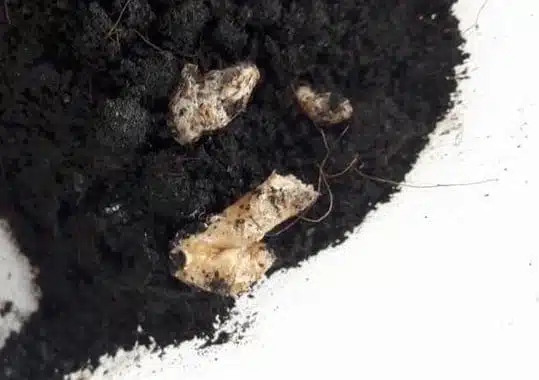Pacman frog owners may notice changes in their Pacman frog’s poop, this may be how it looks or how often they go.
It’s not uncommon for owners to be concerned that their amphibian hasn’t been pooped for a few days or even a week or two.
We have gathered all the information that you need to know about your Pacman frog poop, so you can quickly identify any problems and help your frog to defecate with ease.
How Often Should A Pacman Frog Poop
Pacman frogs are voracious eaters. They literally will eat anything that walks past, including other Pacman frogs that are smaller than themselves.
Therefore, you will find that a baby Pacman frog will go more often than an adult.
- Baby Pacman – Poop every day to every other day
- Adult Pacman – Poop every week to every second week.
Do Pacman Frogs Pee When They Poop?
It’s not uncommon, especially for new Pacman frog owners, to find that when they pick their Pacman frogs up to clean the enclosure, they will pee.
In fact, these amphibians pee a lot. They absorb moisture through their skin and then they need to get rid of it. Therefore, it is not that uncommon for your frog to poop and pee at the same time.
What Should Pacman Frog Poop Look Like
Being able to quickly identify healthy poop from unhealthy poop will give you valuable information on the overall health of your amphibian pet.
Healthy Poop

You will find that fresh poop is dark brown, even black in coloration, and has a shiny coating. Don’t be surprised on the size of the poop. It can be up to one quarter of the size of your Pacman. It will dry out relatively quickly and will lose the shiny coating.
Runny Poop
Runny poop is when the frog’s poop isn’t as firm and hard as usual. You will soon get to know your frog’s poop, so you will quickly identify when something isn’t right.
Runny poop can be a sign of internal parasites or a poor diet.
It’s recommended when your Pacman has a runny poop that you take a stool sample to the vet for testing. Parasites require medication in order to eradicate them.
Discolored Poop

You have noticed your Pacman frog’s poop is always dark brown or black and suddenly it changes color, this could be a sign of digestive issues or poor diet.
Again, you will want to take a sample to the vet for testing. You may notice your frogs poop discolors when you make a drastic change to their diet.
How Long Can A Pacman Frog Go Without Pooping
It’s not uncommon for you to notice that your frog hasn’t pooped in a few weeks. Remember that sometimes poop is hard to see, especially when they poop while burrowed in the substrate.
Generally, babies should be pooping every day to every second day with adults going once a week to once every second week.
Why is My Pacman Frog Not Pooping?
It can be concerning when you note that your Pacman frog hasn’t pooped in a good few weeks and there are numerous reasons for that. Your frog may not be pooping because:
New Home
Pacman frogs are territorial and moving to a new home can be stressful. Stress reduces appetite and when your frog isn’t eating much, then it won’t have the need to poop as much.
Shedding
Pacman frogs are large amphibians that grow at a rapid rate when younger. They shed in order to make space for their growth.
Shedding skin can happen daily to every few weeks. You will notice that your frog will reduce their appetite just before they shed, which will reduce how much they poop. Their appetite will return to normal once the shedding process is complete.
Hibernation
Pacman frogs go into brumation/hibernation when the temperatures get too low, during the winter months.
In the wild, they will hibernate throughout winter. In captivity, you can encourage your frog out of brumation by increasing temperatures and humidity.
When the frogs brumate, the same as other animals, they stop eating, their metabolism slows and they go into a rest state, which means that during this time your frog will not poop.
Setup
If you don’t have the right size enclosure, you are not providing ample warmth and humidity, you may find your frog won’t have an appetite or will eat very little.
Ensure you provide an optimum enclosure environment, keeping your Pacman happy and healthy.
Impaction
Impaction is very serious in Pacman frogs and happens when they eat some of the larger substrate pieces with their food, or their food is too big for them to digest properly.
Impaction is the same as constipation in humans. Impaction will make it impossible for your frog to poop.
Soak your frog in warm water for fifteen minutes, ensure he sits in the water to encourage pooping. If that fails, you will need veterinary treatment.
How To Make A Pacman Frog Poop
Soaking
If your Pacman frog isn’t pooping and has eaten normally or may be impacted, the best way to encourage them to go is to soak them in warm water with a couple of drops of honey.
Remember they soak up their moisture through their skin. The warmth of the water with honey can encourage pooping.
Massage
If the soaking in water doesn’t work, you can gently massage the sides of your Pacman frog’s tummy to encourage a bowel movement.
How To Clean The Poop
It is essential that you keep your frog’s enclosure clean through spot cleaning and regular deep cleaning.
Spot Cleaning
Spot cleaning should be done daily. Remove any poop, dirt, and left-over food from the enclosure. Provide fresh clean water.
Regular Deep Cleaning
Deep cleaning should be carried out once a month.
Place your frog in a temporary container and remove everything from their habitat, including the substrate. Wash and disinfect their entire enclosure, including water bowls and decorations and replace the substrate with new and fresh substrate.
Remember often your Pacman will poop in the substrate while buried, this ensures that all poop is removed.
Summary
It is not a concern when you notice your Pacman has not pooped in a couple of weeks. Keep a close eye on them to ensure that they are eating and acting normal. If your Pacman is eating well, then chances are you cannot find the poop, which may be buried.
Careful monitoring of your frog will help you identify if any further treatment needs to be carried out.